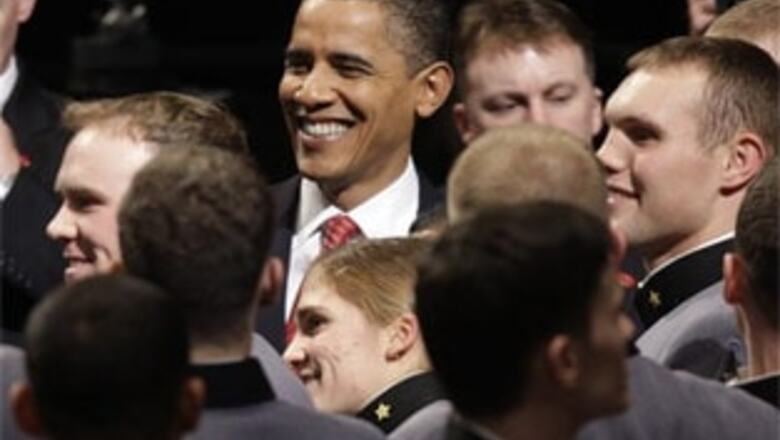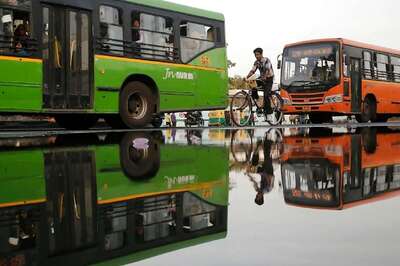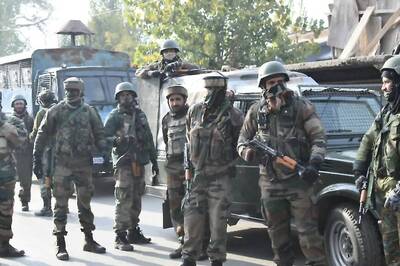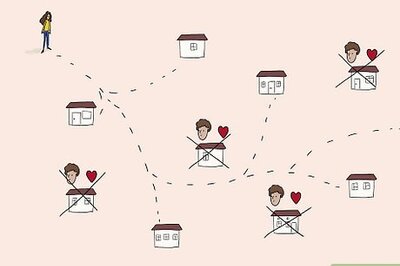
views
West Point (New York): US President Barack Obama ordered an additional 30,000 US troops into Afghanistan on Tuesday night, but balanced the buildup with a pledge to impatient Americans to begin withdrawing US forces in 18 months.
Obama unveiled his plans in a long-anticipated, high-profile speech broadcast from the US Military Academy at West Point, New York, in what could become a defining moment of his presidency and a political gamble that may weigh heavily on his chances for a second White House term.
The President said his new policy was designed to "bring this war to a successful conclusion." The troop buildup will begin almost immediately — the first Marines will be in place by Christmas — and will cost $30 billion for the first year alone.
"We must deny al-Qaeda a safe haven," Obama said in articulating US military goals for a war that has dragged on for eight years. "We must reverse the Taliban's momentum. ... And we must strengthen the capacity of Afghanistan's security forces and government."
The speech represents the beginning of a campaign to restore support for the war effort among an American public grown increasingly pessimistic about success — and among some fellow Democrats in Congress wary of or even opposed to spending billions more dollars and putting tens of thousands more US soldiers and Marines in harm's way.
"It is from here that we were attacked on 9/11, and it is from here that new attacks are being plotted as I speak," Obama said.
A new survey by the Gallup organisation, released on Tuesday, showed only 35 per cent of Americans now approve of Obama's handling of the war; 55 per cent disapprove.
The escalation — to be completed by next summer — is designed to reverse significant Taliban advances since Obama took office 10 months ago and to fast-track the training of Afghan soldiers and police toward the goal of hastening an eventual US pullout.
"After 18 months, out troops will begin to come home," he said flatly.
The size and speed of the troop increase will put a heavy strain on the military, which still maintains a force of more than 1,00,000 in Iraq and already has 68,000 in Afghanistan.
"The 30,000 additional troops that I am announcing tonight will deploy in the first part of 2010 the fastest pace possible so that they can target the insurgency and secure key population centers," Obama said.
The increased troops, Obama said, "will increase our ability to train competent Afghan security forces, and to partner with them so that more Afghans can get into the fight. And they will help create the conditions for the United States to transfer responsibility to the Afghans."
NATO diplomats said Obama was asking alliance partners in Europe to add 5,000 to 10,000 troops to the separate international force in Afghanistan. Indications were the allies would agree to a number somewhere in that range.
The war has even less support in Europe than in the United States, and the NATO allies and other countries have about 40,000 troops on the ground.
Obama also leaned heavily on NATO allies and other countries to join in escalating the fight.
"We must come together to end this war successfully," the President said. "For what's at stake is not simply a test of NATO's credibility. What's at stake is the security of our allies, and the common security of the world."
PAGE_BREAK
Obama's nationally broadcast speech ends three months of exacting deliberations that won praise from supporters and criticism from opponents.
Former vice president Dick Cheney said Obama was "dithering" in making a decision on commanding Gen. Stanley McChrystal's September request for 40,000 new troops — 10,000 more than Obama now plans to send.
Obama underscored his commitment to stabilising Afghanistan and scouring corruption out of the government of President Hamid Karzai.
Obama vowed to prevent Afghanistan from again becoming a safe haven for al-Qaeda boss Osama bin Laden and his terrorist organization.
Obama rejected critics' arguments that the Afghanistan war was doomed like the long American war in Vietnam was, saying any comparison "depends upon a false reading of history."
He said that unlike Vietnam, the US has been joined by a coalition of 43 nations in Afghanistan and is not facing a broad-based popular insurgency.
The President argued that the most important difference with Vietnam is that "the American people were viciously attacked from Afghanistan, and remain a target" for al-Qaeda extremists.
Most of the new forces will be combat troops. There will be about 5,000 dedicated trainers in the 30,000 troops, showing the emphasis on preparing Afghans to take over their own security.
And the President is making clear to his generals that all troops, even if designated as combat, must consider themselves trainers.
Even before the President spoke, his plan was met with skepticism in Congress, where Senetor Russ Feingold and liberal Democrats in the House of Representatives threatened to try to block funding for the troop increase.
Sen. Carl Levin, the Democrat who chairs a military oversight panel, said he didn't think Democrats would yank funding for the troops or try to force Obama's hand to pull them out faster.
But Democrats will be looking for ways to pay for the additional troops, he said, including a tax increase on the wealthy although that hike is already being eyed to pay for health care costs.
Meanwhile, Republicans said that setting a timetable for withdrawal would demonstrate weakness.
"The way that you win wars is to break the enemy's will, not to announce dates that you are leaving," said Senetor John McCain, the top Republican on the Senate Armed Services Committee and Obama's campaign rival in last year's presidential race.
In the days leading up to the speech, Obama has been discussing his Afghanistan strategy with other world leaders, including Russian President Dmitry Medvedev, German Chancellor Angela Merkel and French President Nicolas Sarkozy.
Late Monday, the President spent an hour on a video conference call with Karzai. The White House said Obama told the Afghan leader "that US and international efforts in Afghanistan are not open-ended and must be evaluated toward measurable and achievable goals within the next 18 to 24 months."
The United States went to war in Afghanistan shortly after the September 11, 2001, al-Qaeda terrorist attacks on the United States.
Bin Laden and key members of the terrorist organisation were headquartered in Afghanistan at the time, taking advantage of sanctuary afforded by the Taliban government that ran the mountainous and isolated country.
Taliban forces were quickly driven from power, while bin Laden and his top deputies were believed to have fled through towering mountains into neighboring Pakistan.
While the al-Qaeda leadership appears to be bottled up in Pakistan's largely ungoverned tribal regions, the US military strategy of targeted missile attacks from unmanned drone aircraft has yet to flush bin Laden and his cohorts from hiding.
As a candidate, Obama called Afghanistan a war worth fighting, as opposed to Iraq, a conflict he opposed and has since begun easing out of.




















Comments
0 comment